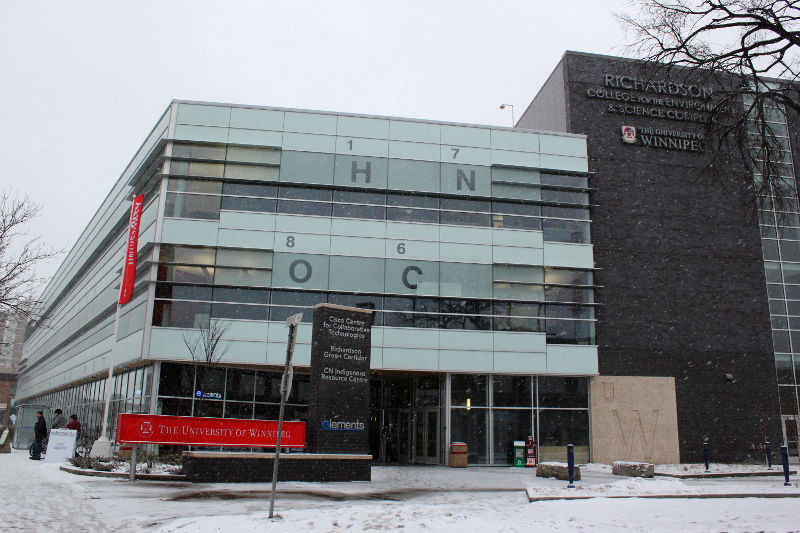Sustainability with or without federal help, Axworthy says
As Canada withdraws from Kyoto Accord, U of W president renews commitment to sustainability
The University of Winnipeg remains committed to the Kyoto Protocol despite Canada reneging on its obligations, University of Winnipeg president Lloyd Axworthy says.
Axworthy posted his missive Dec. 13 on the university’s website, one day after Environment Minister Peter Kent announced Canada will be formally withdrawing from the Kyoto accord.
Axworthy said his announcement was meant to serve as a reminder that the university had made a commitment to sustainability in 2006 and was not politically motivated.
“Even though the government may be giving up on it, other institutions should not,” Axworthy said in an interview on Jan. 4.
“The rest of society does not have to rely exclusively on what the government does. Each of us, each institution, each individual can meet those goals and requirements (of the Kyoto Protocol).”
According to Axworthy, Kyoto is a standard of sustainability that should be followed.
The U of W is close to meeting its goals of reducing emissions by six per cent based on 1990 standards - one of the main requirements of the Kyoto Accord, he said.
“We’re a teaching, learning institution and that would be a wonderful way to show to our students that we do have the capacity and we have some political will to make these things actually happen,” he said.
“ The rest of society does not have to rely exclusively on what the government does.
Lloyd Axworthy, president, University of Winnipeg
Alana Lajoie-O’Malley, director of campus sustainability, said after five years spent creating a sustainability strategy, the university is now able to begin implementing some changes that will significantly reduce the university’s greenhouse gas emissions.
These changes include launching a retrofitting program in the school’s core buildings, and installing an updated heating system. The changes will cut the school’s emissions by approximately 2,000 tonnes, Lajoie-O’Malley said.
According to her, emissions in the core buildings in 2010 totaled approximately 4,300 tonnes. That means the university will be cutting core emissions by nearly 50 per cent.
This offsets the increases in emissions stemming from the university’s continued expansion, Lajoie-O’Malley said.
Total costs of these sustainability initiatives were not available, but Lajoie-O’Malley said the project will have paid for itself in seven to nine years.
However, while the university’s commitment to sustainability is commendable, the institution still has a long way to go in achieving sustainability outcomes, said Josh Brandon of the Green Action Centre, a non-profit environmental organization.
According to Brandon, the university’s continued expansions have resulted in an increase in emissions.
“What that highlights is the real difficulty we have as a culture to combine growth with sustainability,” Brandon said.
The percentage of waste being diverted from landfills at the university decreased from 55 per cent in 2007 to 35 per cent in 2009, Brandon said, citing the Campus Sustainability Performance Report the U of W compiled in 2009.
“We have a long ways to go before we meet our targets. It’s going to require that the university really step up its actions,” he said.
Lajoie-O’Malley said the difficulties in measuring waste often result in inaccurate data.
“I highly suspect that the fluctuations in waste diversion are more inaccuracies in waste diversion data,” she said.
Published in Volume 66, Number 15 of The Uniter (January 11, 2012)







